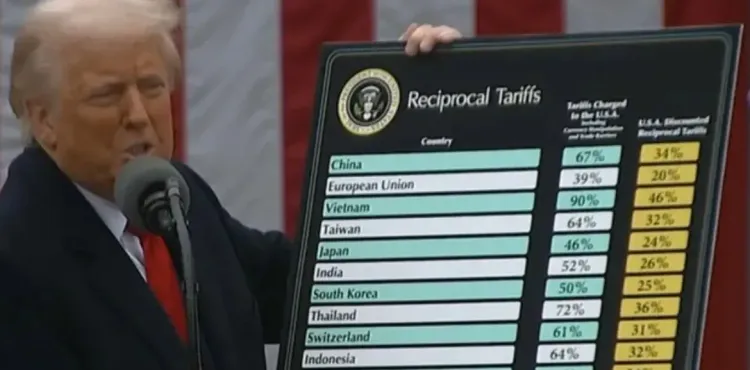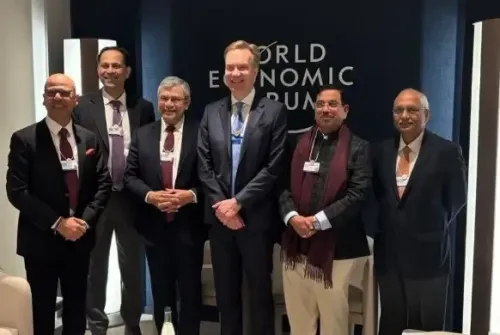Neelkanth Mishra: Currency Devaluation Likely for Nations Like China Amid US Tariffs

Synopsis
Key Takeaways
- China may need to devalue its currency.
- The risk of a currency war is significant.
- US tariffs could reshape global trade dynamics.
- India is relatively well-positioned amidst economic uncertainties.
- Market volatility is expected as tariffs impact trade balances.
New Delhi, April 7 (NationPress) As the US reciprocal tariffs impact global markets, Neelkanth Mishra, the chief economist at Axis Bank, stated on Monday that several nations, including China, may be compelled to devalue their currencies in the current climate.
The global financial landscape has been rattled by tariffs instituted by US President Donald Trump, prompting countries to devise responses to these stringent trade measures.
Mishra highlighted China’s increasing balance of payments pressure, stemming from capital flight and a reduction in foreign direct investment.
With China's trade surplus diminishing and tariffs exerting economic pressure, he anticipated that the nation might be pressured to devalue the yuan.
The likelihood of a currency war looms large, and once devaluation commences, the situation could devolve into a highly unpredictable environment.
Mishra shared with NDTV Profit that this could incite volatility in global financial markets as the balance of trade shifts between nations and industrial policy maneuvers, such as export subsidies and currency devaluation, come into play.
According to Mishra, the US administration’s goals are not solely economic; they are also political, aiming to realign global trade dynamics by shifting from multilateral to bilateral agreements.
While some tariffs may be subject to negotiation, others are likely to remain as mechanisms for revenue generation and to confront the US dollar’s preeminence in global trade.
Mishra noted that the more pressing issue for India is the potential for a global economic downturn, which could undermine investor confidence and impact financial markets, particularly given India’s low equity risk premium amidst worldwide uncertainties.
Nonetheless, he pointed out that India is in a more advantageous position than many other economies, thanks to fiscal and regulatory easing, paired with decisive monetary policy actions by the RBI.
On Monday, a significant sell-off on Dalal Street resulted in a sharp decline in stock markets following a global downturn, driven by heightened fears surrounding the trade war and impending US reciprocal tariffs.
Trump has defended his controversial tariff policies, downplaying concerns about their economic repercussions. He asserted that world leaders are "eager to negotiate" the reciprocal tariffs.
"Sometimes you need to take medicine to remedy a situation," Trump remarked, referencing the market fluctuations. Since the initiation of these tariff policies, the market capitalization of US companies has seen a staggering reduction of trillions of dollars, with investors preparing for further repercussions.










